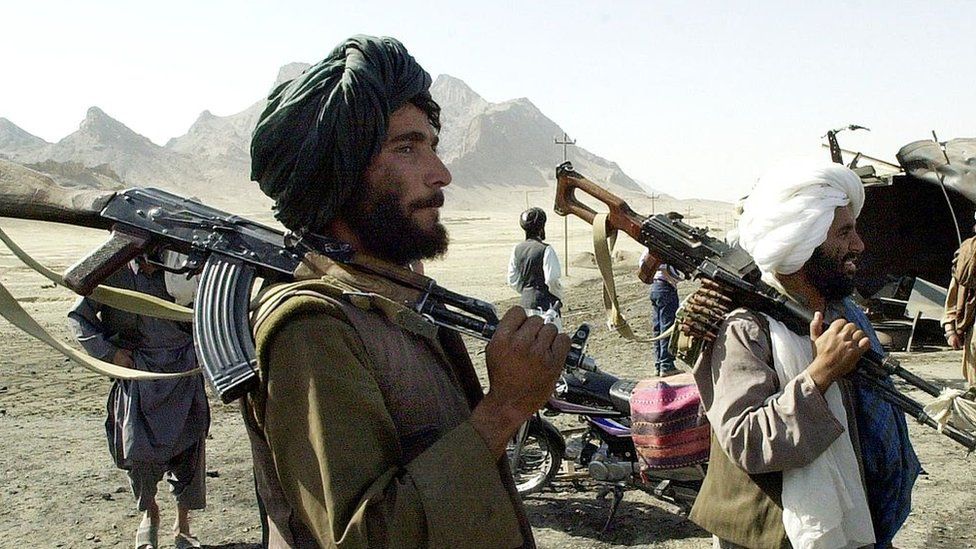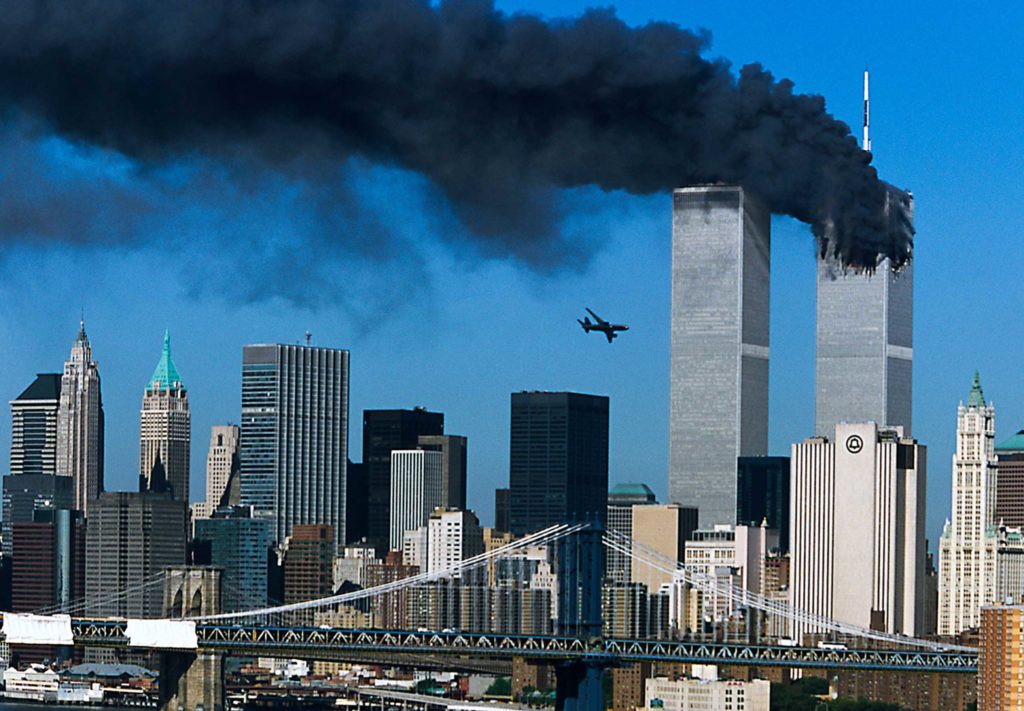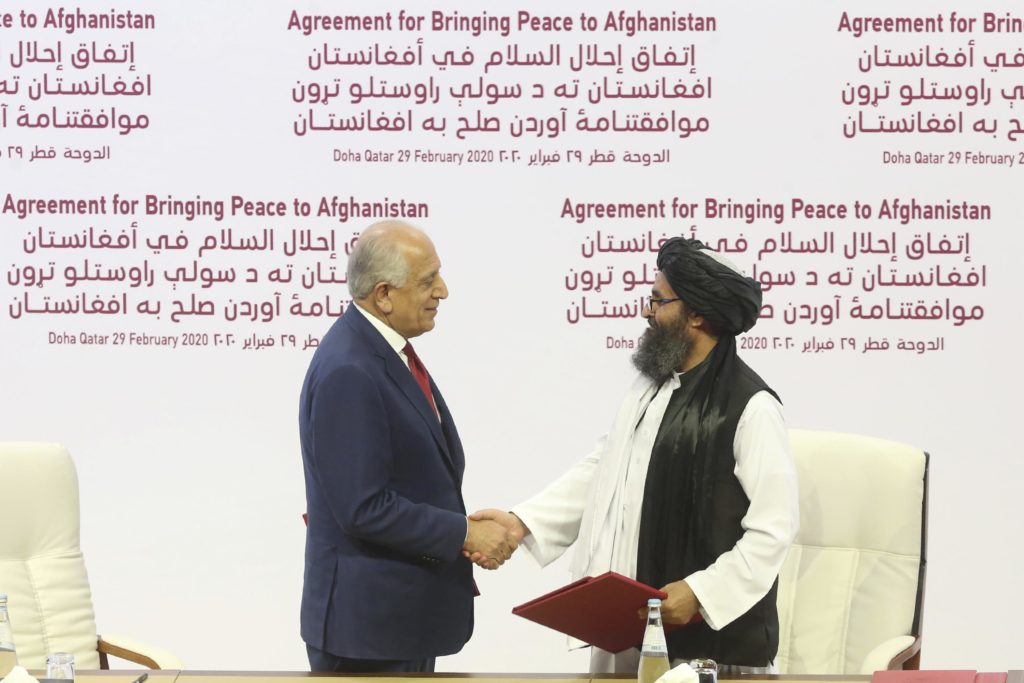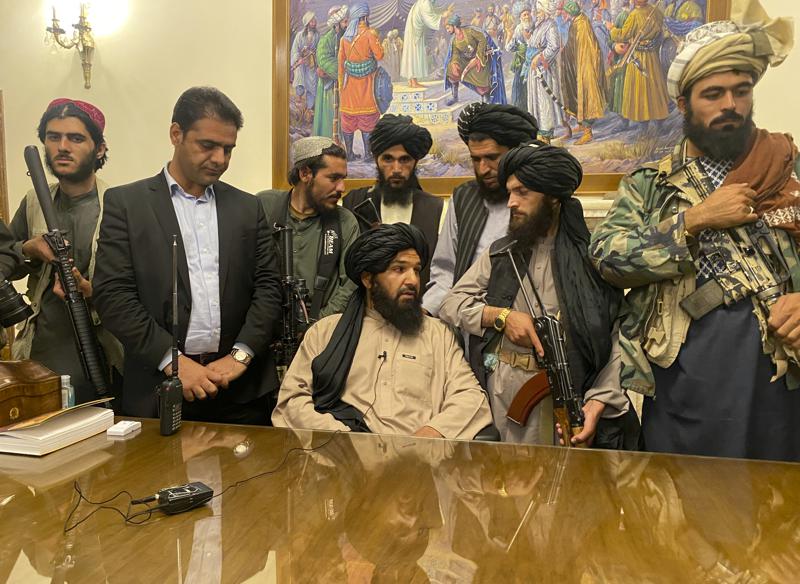With the chaos ongoing in Afghanistan right now, one cannot help but wonder how we ended up in this position? It might not be a shock to many that the Taliban, after the western capitulation, retook the reigns again, however, what is shocking is how fast they were able to take over the country. While people can blame President Joe Biden for the U.S. withdrawal, he was not the only U.S. president who made questionable decisions. The Taliban control in the 1990s, the U.S. invasion in 2001, and Doha Deal in 2020 aided in the Taliban takeover.
1996-2001: Rise to Power

In the early 1990s, the Taliban emerged in northern Pakistan once the Soviet troops had withdrawn from Afghanistan. The Taliban’s main motive was to restore peace and security; once in power, they wanted to enforce their version of Sharia, Islamic law. In 1995, the Taliban quickly gained influence in south-western Afghanistan. They captured the province of Herat, bordering Iran, and one year later captured the Afghan capital, Kabul, overthrowing the regime of President Burhanuddin Rabbani.
By 1998, the Taliban were in control of 90% of Afghanistan. Some of the early successes of the Taliban happened due to driving out the corruption of the previous regime. However, Taliban control meant strict interpretation of Sharia law that came with brutal punishment if violators broke Sharia law.
2001:The Taliban Fall

The Taliban gained worldwide attention on September 11, 2001, World Trade Center attacks in New York. The Taliban provided sanctions for Osama Bin Laden and his al-Qaeda movement. After the 9/11 attacks, the U.S. and U.K. military launched attacks in Afghanistan. American Warplanes started to bomb Taliban targets and bases belonging to the al-Qaida network. By December 2001, the Taliban regime collapsed, leading to Taliban leaders and other senior officials, including Bin Laden, fleeing.
2004-2009: Regrouping

President George W. Bush calls for a reconstruction of Afghanistan, leading to Afghan forces regaining control of their country. During this reconstruction period, the U.S. Congress appropriates over 30 billion in humanitarian and reconstruction assistance to Afghanistan from 2001 to 2009. During 2005, President Bush and Afghan President Hamid Karzai developed a partnership giving U.S. forces access to Afghan military facilities to prosecute the war against international terror.
Amidst the growing number of foreign troops, the Taliban gradually regain some influence in Afghanistan. With rapid killings from the U.S. military on Afghan people, the Taliban restructures their leadership after killing their military commander in 2008.
2008-2016: The Obama Administration
Despite a promise to bring troops home, President Barak Obama sent more than 30,000 troops to Afghanistan during his tenure as president. The primary commitment was to “win the war” in Afghanistan, focusing on capturing Bin Laden. In 2011. U.S. forces kill Bin Laden in Pakistan. At this point, Obama is facing pressure from lawmakers and Americans to bring troops home. Despite peace talks with Taliban leaders, it became uncertain that Afghans would secure their country against the Taliban.
2020: Trump’s “Big Doha Deal” With the Taliban

Afghan-U.S. relations took a significant turn once Donald Trump came into office. Trump did not shy away from wanting to pull troops from Afghanistan. On the surface, Trump just wanted out of the war, something his predecessors could not accomplish. However, he did not look at all that it entailed. The Doha deal took over 18 months to complete, with Trump taking various secret meetings with the Taliban.
Finally, in February 2020, Trump announced that the U.S and Taliban secured an agreement. The fundamental objective of the deal: The United States was to get out of Afghanistan in 14 months; in exchange, the Taliban agreed not to let Afghanistan become a haven for terrorists and stop attacking U.S. service members. The deal laid out a specific timeline for removing all NATO, Allied, and U.S. troops by September 11, 2021.
Additionally, the U.S. would release around 5,000 Taliban prison with the Taliban releasing 1,000 of its prisoners. The main problem with this deal is that it acted on faith and trusting the Taliban would abide by the agreement. There was no enforcement to ensure the Taliban would keep their word.
The Present: The Regaining Power

Months after the deal, the Taliban proved to have ties with the terrorist group al-Qaeda still. The Taliban thought of the arrangement as a necessary deal to ensure U.S. removal in the country with little obligation or effort on their part. Fast forward to August 2021; President Joe Biden is following through with the Doha Deal. Although President Biden claimed he was left with little to no choice when he became president, Biden agreed with a deal he vocally criticized just months prior.
With the troops withdrawing, this opened the window for the Taliban to regain control of Afghanistan with little to no resistance. These events led to the bombing outside of the Kabul airport killing U.S. troops, and the horrific evacuation of the city.
The sad reality of the situation is that removing troops from the country is not the same as ending the war. The removal of American and allied soldiers puts the country in the same position we were 20 years ago, with the threat of terrorist attacks still looming and another 9/11 attack very prominent. The changes within Afghanistan, along with the lives lost and billion dollars spent, are now in vain as we just took five steps back in a 20-year war.


